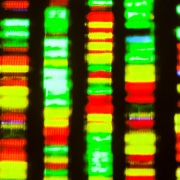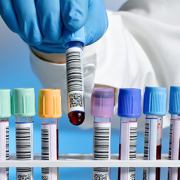How accurate are genomic tests?
We outline five key things to consider when answering the common patient question, “How accurate is this genomic test?”
Receiving the results of a genomic test can be an anxious time for a patient: the result may lead to a diagnosis they are dreading, or it may be inconclusive when a diagnosis was hoped for. In addition, the patient may not understand what the results mean for them and their family members. For this reason, knowing how to appropriately discuss results with patients and their families is a vital weapon in a good clinician’s arsenal – and a key part of this is knowing how to address the common patient question of, “How accurate is this test?”
There are five things to bear in mind when discussing how accurate genomic tests are. We’ve explained each one below.
1. Sensitivity
The sensitivity of any type of test – genomic or otherwise – relates to how many false negatives it generates. For example, if 10 people out of 100 have the condition being tested for and the test identifies eight of them, then the sensitivity is 80%. So, a test with lower sensitivity will generate more false negatives than a test with high sensitivity.
2. Specificity
The specificity of the test relates to how many false positives it generates. For example, If 10 people out of 100 have the condition being tested for but 20 test positive, the specificity (the proportion of the unaffected people it correctly identified) is 89%. So, a test with lower specificity will generate more false positives than a test with high specificity.
Generally, tests such as whole genome sequencing and gene panels performed by clinical genetics services have very high sensitivity and specificity. Non-invasive tests, especially those using cell-free DNA, can be less accurate in these regards but can be valuable for screening in cases where more accurate tests are expensive, invasive or carry risks. In these cases, further testing (such as a biopsy) can often be used to confirm any diagnosis before further decisions are made.
3. Is it diagnostic or predictive?
Diagnostic tests look for the cause of symptoms a patient already has. Understanding the genetic variants causing a condition can help clinicians select the best treatments and provide patients and families with insight and understanding into what to expect.
Predictive tests, on the other hand, look for genetic variants associated with an illness a person may develop in the future. Predictive tests are often performed because a patient has a family history of a condition; however, even when such tests can provide a definitive genomic result, it does not necessarily mean that the patient will go on to develop the condition. Whether they do or not will depend on the penetrance of the genetic changes being looked at.
4. Penetrance
Penetrance refers to the proportion of people with a particular gene variant who will be affected by the associated condition. For example, if a person has 40 or more CAG repeats in their Huntingtin gene, they will develop Huntington’s disease unless they die prematurely from another cause. These variants of the Huntingtin gene are 100% penetrant.
However, while a person with a BRCA variant will have an increased chance of developing breast cancer, there is no certainty that they will do so. Even if the test is 100% accurate, and the variant the person carries is one that is strongly associated with cancer risk, the test cannot say for certain whether that individual will get cancer.
5. What variants are being looked for?
A single gene may have dozens, if not hundreds of possible variants. Many of these may have no effect on health or disease; some may have significant effect.
There are many known mutations in the BRCA1 and BRCA2 genes that are known to be associated with increased risk of breast and other cancers, and a test can only return results about the specific variants it looks for.
Some direct-to-consumer genetic tests look for a few BRCA variants but not all of them. Therefore, if one of these tests returns a result saying the customer does not have the BRCA variant they were tested for, even assuming that the test was 100% accurate, the person could still have another BRCA variant that could increase their cancer risk. Results like this can cause misunderstandings among people without a good knowledge of genomics.
If you’d like to learn more about engaging with patients and their families about genomics, why not take our short online course Genomics 101: Talking Genomics?
–









